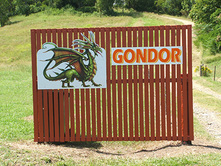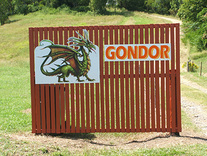DON'T MISS THIS ONE:
April 25th and 26th: Characters and Short Story workshops

You can choose to take both or one of these workshops.
Crafting Unforgettable Characters – Saturday, April 25th 10am – 4pm
Great characters are essential to a great story. We recall story characters with fondness and passion because they've reached into our hearts, our thoughts, our psyches, and our memories.
Like Harry Potter, Frodo and Sam in Lord of the Rings and Elizabeth Bennet in Pride and Prejudice or complex characters like Atticus Finch in To Kill a Mockingbird, whose intelligence, wisdom and courage shines like a beacon, your characters have to be believable and memorable.
There are many more, of course; those unique characters with surprising points of view like Death in Zusak's The Book Thief, and Bartimaeus the Djinn in Jonathan Stroud's The Amulet of Samarkand. Will your readers remember your character as we all remember them, even after the book is closed?
This hands-on workshop will investigate:
* how to ensure your characters have the strength to carry your story.
* how to create new engaging, believable characters using visual stimuli.
* how to build on their complexity, vulnerability and appeal.
The workshop will include a Q & A session.
Bring along your Work-in-Progress if you want help to develop your characters.
************
Writing Successful Flash Fiction and other short stories – Sunday, April 26th 10am – 4pm
Writing Flash Fiction is ideal for time-poor writers … a most satisfying, crazy but rewarding literary obsession. They usually range in word limit between 20 and 1000 words. At its heart, this short-short story is a snappy, sensory exposé of the human condition, a narrative that rings with shared humanity.
All good short stories, they have a beginning, middle and end, they have limited characters, settings, plot and conflict, and a twist at the end, that exquisite ah-ha moment surprising your main character as well as your reader.
This hands-on Workshop will show you:
* how to find story ideas
* practise using the five senses; how to focus on a tiny excerpt of life, how to ensure your story has a reason for being.
* learn successful ways to increase your short story's chance in competitions; submitting to magazines and anthologies.
This is a two day workshop by you may choose to attend either day if you wish.
ACCOMMODATION: As our accommodation is not yet ready, we have arranged accommodation at the nearby Kilcoy Motel for those who wish to stay over.
They have 2 and 3 bedroom cabins as well as motel rooms. You can have a look at their rooms on their website http://kilcoymotel.com.au. If you book through us, we can get you a slightly cheaper rate.
To book phone 54 981 332 or go to http://gondorwriterscentre.com/workshops.htm
Tutor: Sheryl Gwyther
Award-winning author / Experienced writing workshop presenter / Organiser of the highly-successful 52-Week Flash Fiction Challenge on FB.
.
http://sherylgwyther.net
https://www.facebook.com/groups/flashfictionchallenge/



